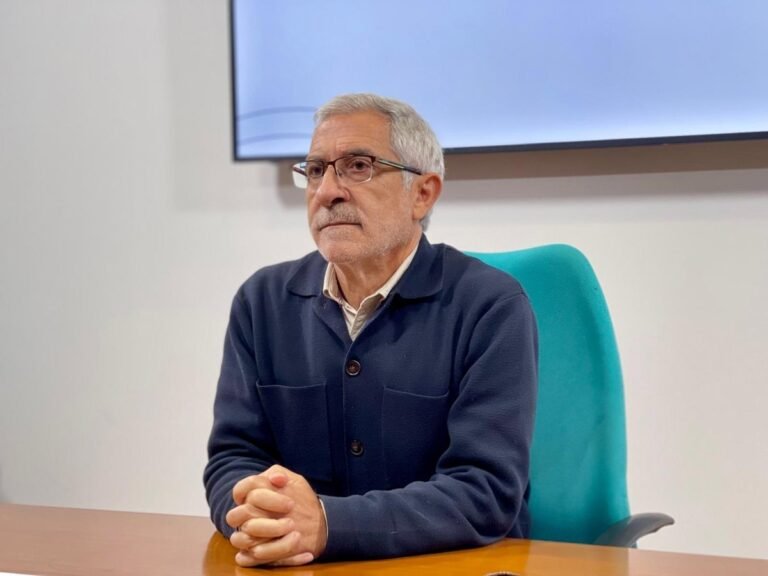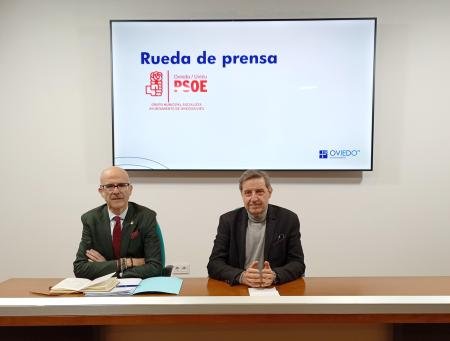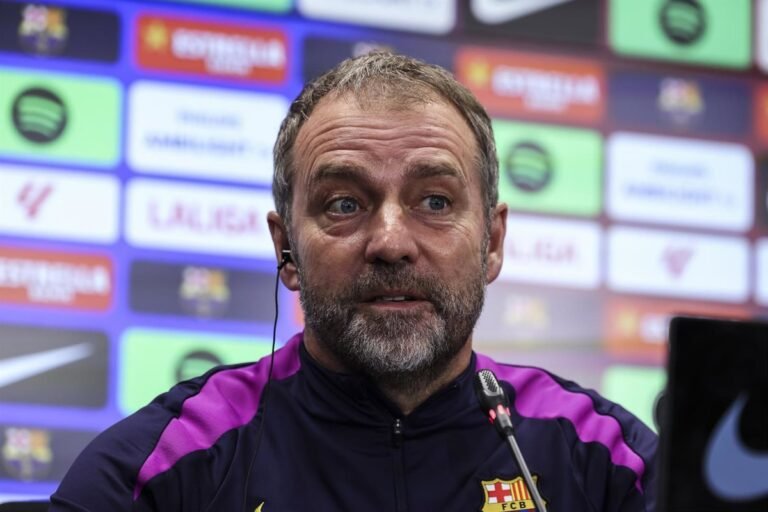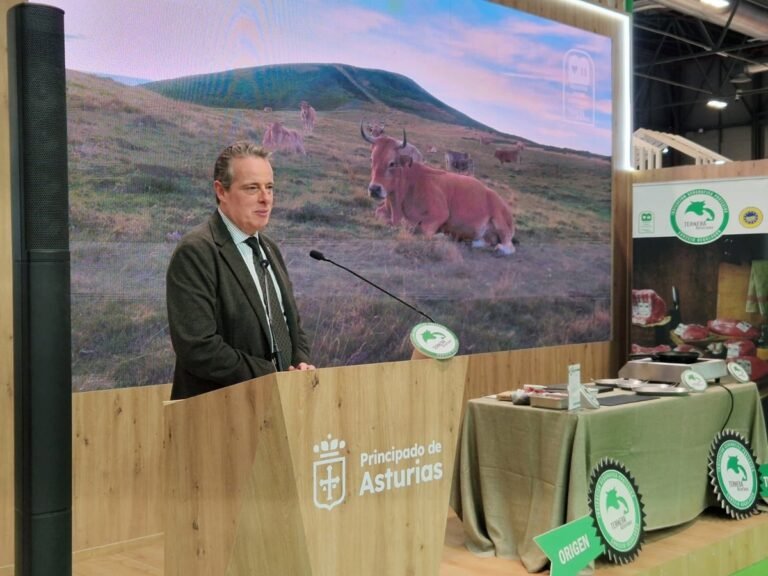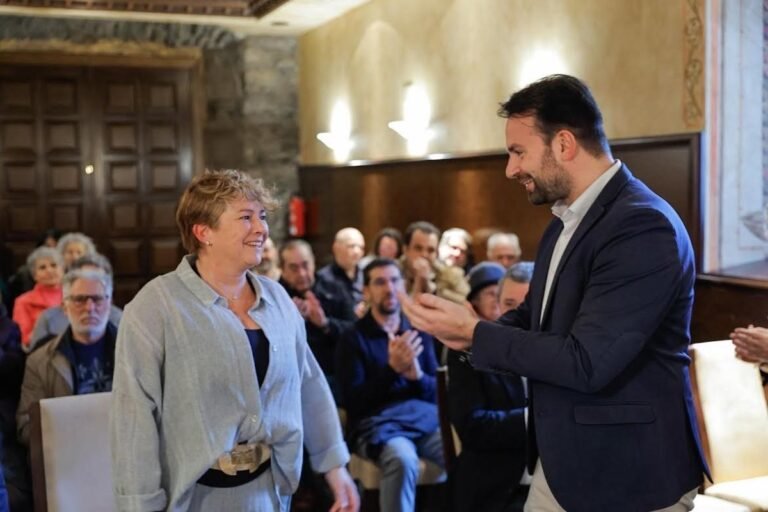Oviedo has once again paid tribute to Miguel Ángel Blanco, who was assassinated by the terrorist group ETA 28 years ago. Members of the Corporation, led by the Mayor, and residents of the city participated in the Institutional Event in memory of the councilor from Ermua that took place on the street named after him.
The Mayor, Alfredo Canteli, recalled the emotion with which the news was received on July 13, 1997. The Mayor remembered Miguel Ángel Blanco as «a simple, hardworking, and humble person,» adding that «it is good to remember that this happened and that it never happens again.»
During the event, the councilor for Interior, Institutional Relations, Citizen Attention, Participation, and Districts Mario Arias, read the Manifesto of the Miguel Ángel Blanco Foundation for the 28th Anniversary titled WE ARE MEMORY:
«28 years have passed, and we still remember Miguel Ángel Blanco. Our personal and collective memory includes the memories of those days in July 1997 when ETA kidnapped and killed a 29-year-old man for being a citizen committed to the principles of freedom, political plurality, and tolerance. The terrorist group represented the opposite: violent imposition, exclusion, hatred of the different. Citizens of a certain age still feel the unease, the frustrated hope, the indignation, the compassion for the victim, and the repudiation of terrorism they felt during four days that changed the history of the fight against terrorism suffered in Spain.
We remember the emotions and actions that millions of Spanish citizens experienced those days as we tried to save a life torn from normalcy with maximum cruelty and villainy. We cannot forget the names of his captors: Javier García Gaztelu, Txapote, Irantzu Gallastegui, and Javier García Gaztelu. They kidnapped Miguel Ángel Blanco in the early afternoon of July 10, 1997, as he was on his way to work. They held him for 48 hours, and on July 12, they took him from his hiding place, brought him to a wooded area in Lasarte (Guipúzcoa), and, bound, blindfolded, and on his knees, they shot him twice with a small-caliber gun, fatally wounding him, leaving him with a thread of life for 12 hours until he passed away early on the 13th.
ETA blackmailed the government and all of society, demanding, to avoid carrying out their threat, the transfer of all their terrorist prisoners to the Basque Country. We did not give in; we civicly rebelled and remained united and firm.
Ermua, Miguel Ángel’s municipality, became a symbol of resistance to terrorism. The exemplary behavior of the residents in the face of Miguel Ángel’s kidnapping was transmitted to all of Spanish society, which resisted for three days by taking to the streets and finally, after 777 ETA mortal victims, responded without fear, with clarity and firmness against the group and its accomplices. In the streets, it was shouted: “Without guns, you are nothing,” “ETA and HB, it’s all the same.” Dignity was maintained above fear and determination against those who had been attacking coexistence for decades, the terrorists: those who planted bombs and those who asked for votes to legitimize terrorism, spreading fear and hatred.
We will not forget the events, nor the malice of the assassins, nor the innocence of this victim that we carry in our hearts as a symbol of each and every one of the thousands of victims who have had to suffer the terrorist attack for over 50 years: murdered, injured, threatened, extorted, exiled, the families, and colleagues of all of them. We will not forget that all of Spanish society lived under the yoke of ETA, nor the great sacrifice of the State Security Forces and Corps who fought tirelessly on the front lines against this criminal scourge. This part of our recent history belongs to us; we endured it and overcame it, it is ours, it shapes us and has made us who we are and who we want to be: a society made up of conscious, sensitive citizens committed to a high-quality democracy that prevents the victory of false narratives, the trivialization and legitimization of terrorism, the indignities suffered by victims, a moral reference for our coexistence. It is our duty to share the Memory of the victims, learn from what we lived and suffered, and pass it on to the young people who have the right to know this part of their country’s history.
Miguel Ángel, a free man, a brave citizen, a Spaniard proud of being Basque and defending the principles of one of the constitutionalist political parties attacked by ETA’s savagery. A young man, a friend to his friends, a good son and citizen, a normal guy, committed to freedom and the feeling of being Basque and Spanish without complexes in the face of identity fanatics, in a time of political barbarism.
In the social and political significance of Miguel Ángel Blanco, the principles of civilization and the rule of law, of moral decency, are concentrated. Miguel Ángel Blanco has become a hero, albeit reluctantly, a symbol of coexistence and unity that represents the best of what we have built socially as a nation fighting against its enemies. The ethical foundation on which we must build our freedoms.
ETA no longer kills, but its legacy remains. Its political arm, EH Bildu, has continued the ideology of exclusion and hatred of Spain for which the group killed, representing and including terrorists on its electoral lists, not condemning the terrorist violence that violated the human and civic rights of thousands of Spaniards, legitimizing terror in the streets of the Basque Country and Navarra, and still defending the political objectives for which many innocents were killed and persecuted. ETA’s proxies have more political power than ever because the Spanish government has made agreements with them to stay in power, and this ethically and politically unsustainable situation is a democratic anomaly that revictimizes the victims of terrorism, a situation we continue to denounce in line with what we experienced 28 years ago: unity and isolation of the violent, rule of law, and democratic firmness. The payment for this collaboration responds with impunity to the demand for justice that the victims demand.
Respecting the Spirit of Ermua, respecting Miguel Ángel Blanco, demands not giving in to the legitimization of terrorism, its whitewashing, the impunity that the terrorists and their accomplices impose day by day. Miguel Ángel Blanco’s murderers must serve their sentences, without shortcuts, without legal loopholes, for justice. We are building a Memory of terrorism and its victims that defends the constitutional democracy for which thousands of Spaniards gave their lives. Let us honor this sacrifice.
Thanks to the thousands of citizens and dozens of municipalities commemorating Miguel Ángel Blanco these days. We are convinced that the strength of his Memory helps us continue to fight against forgetting and impunity.»

